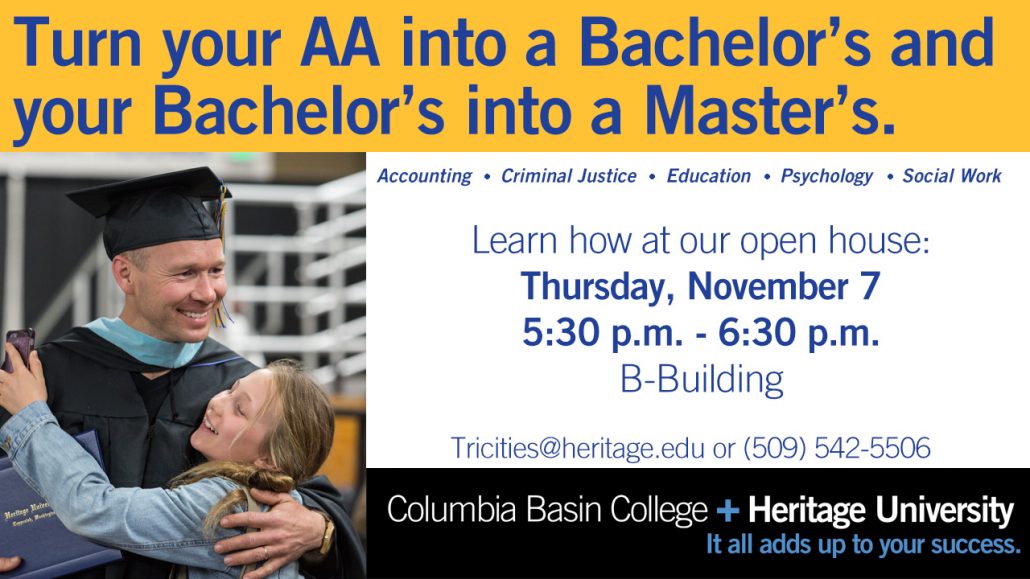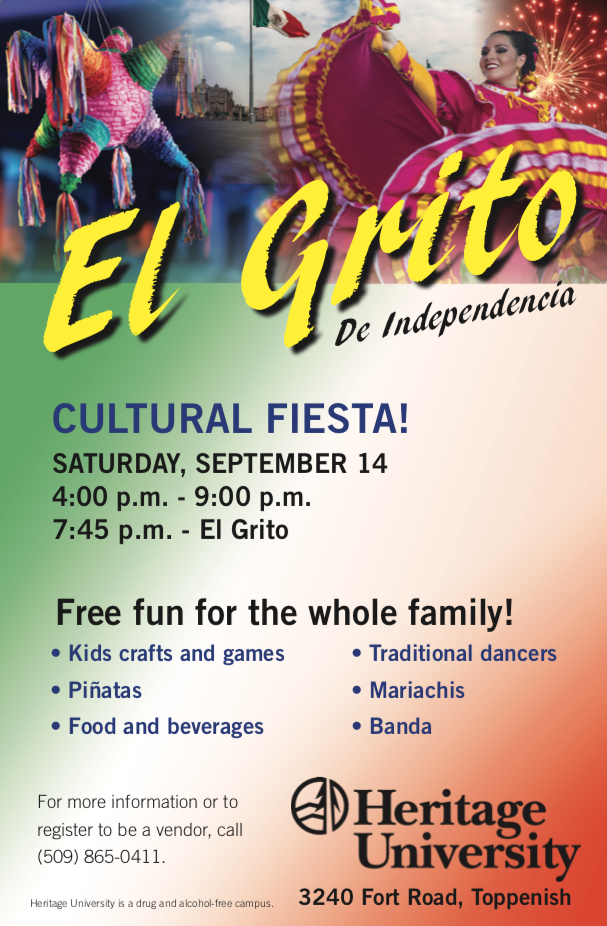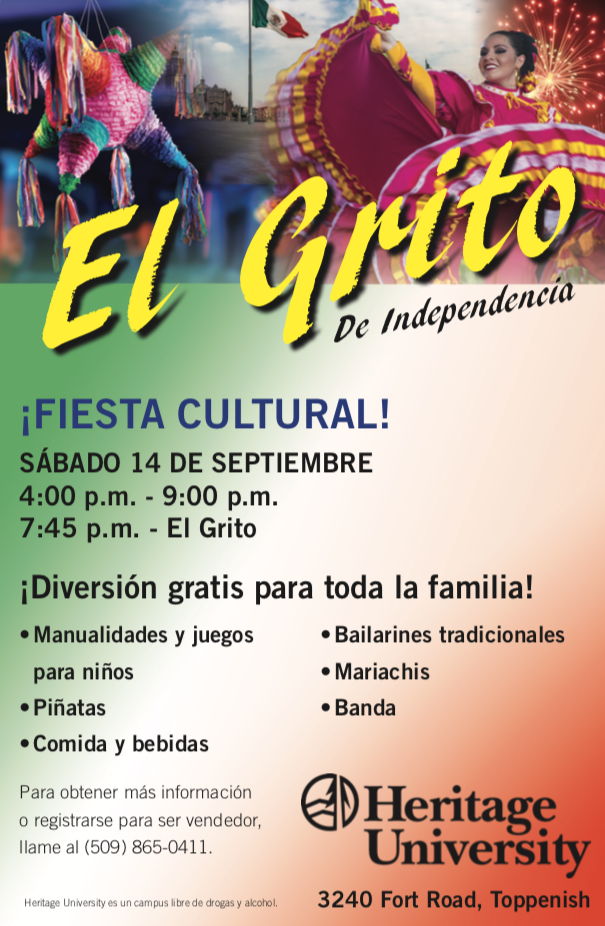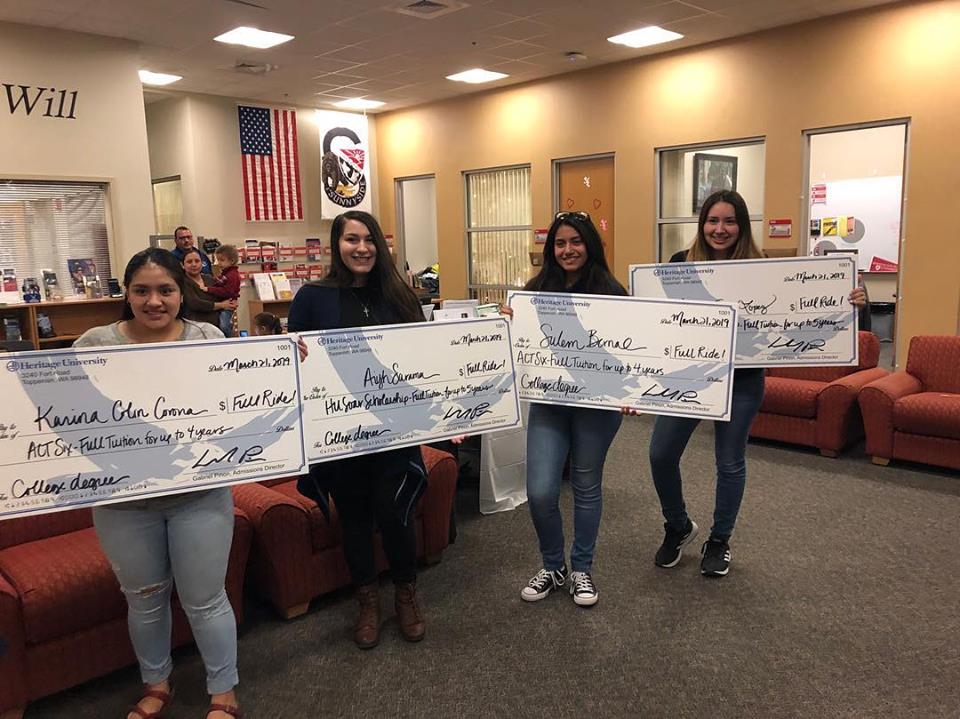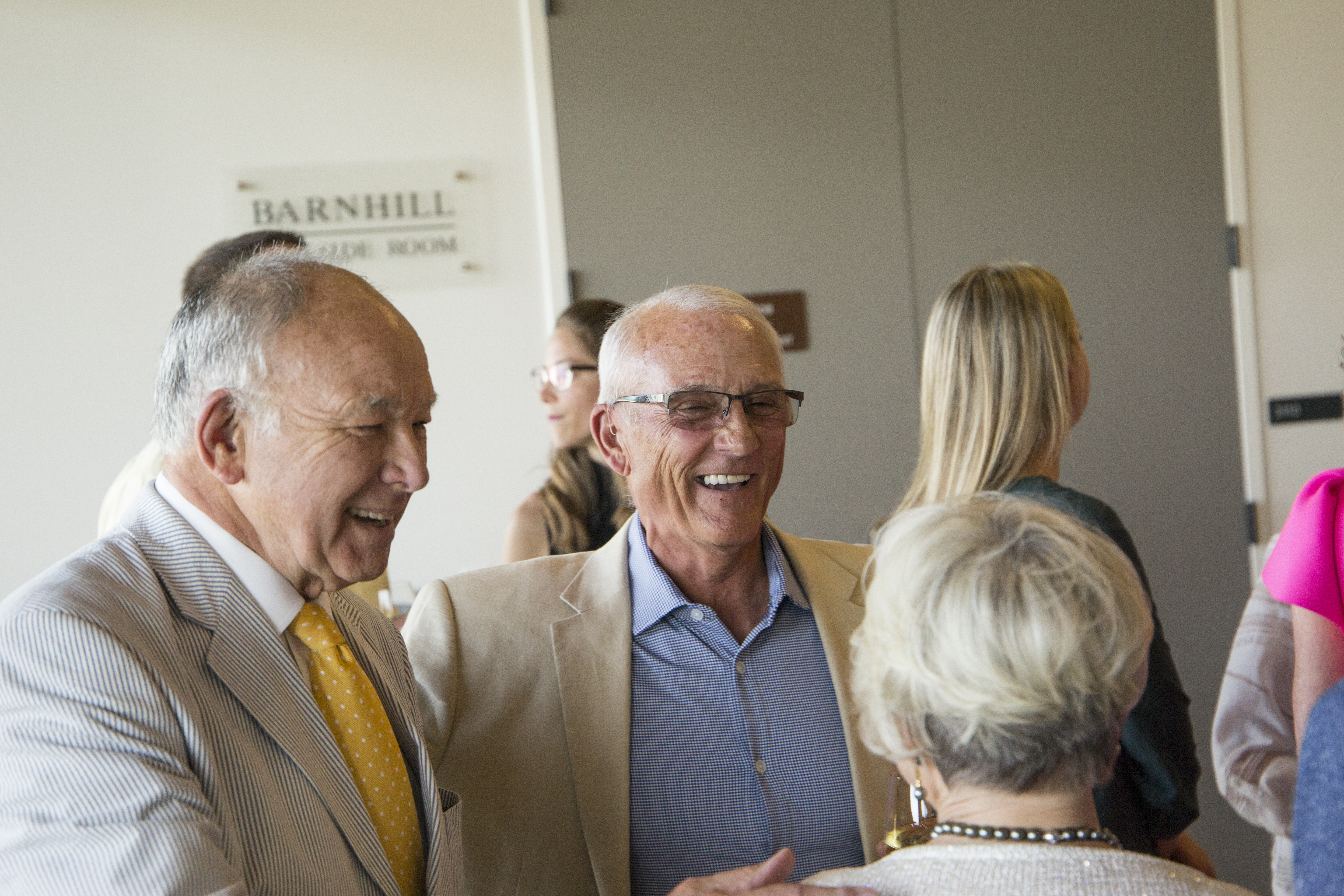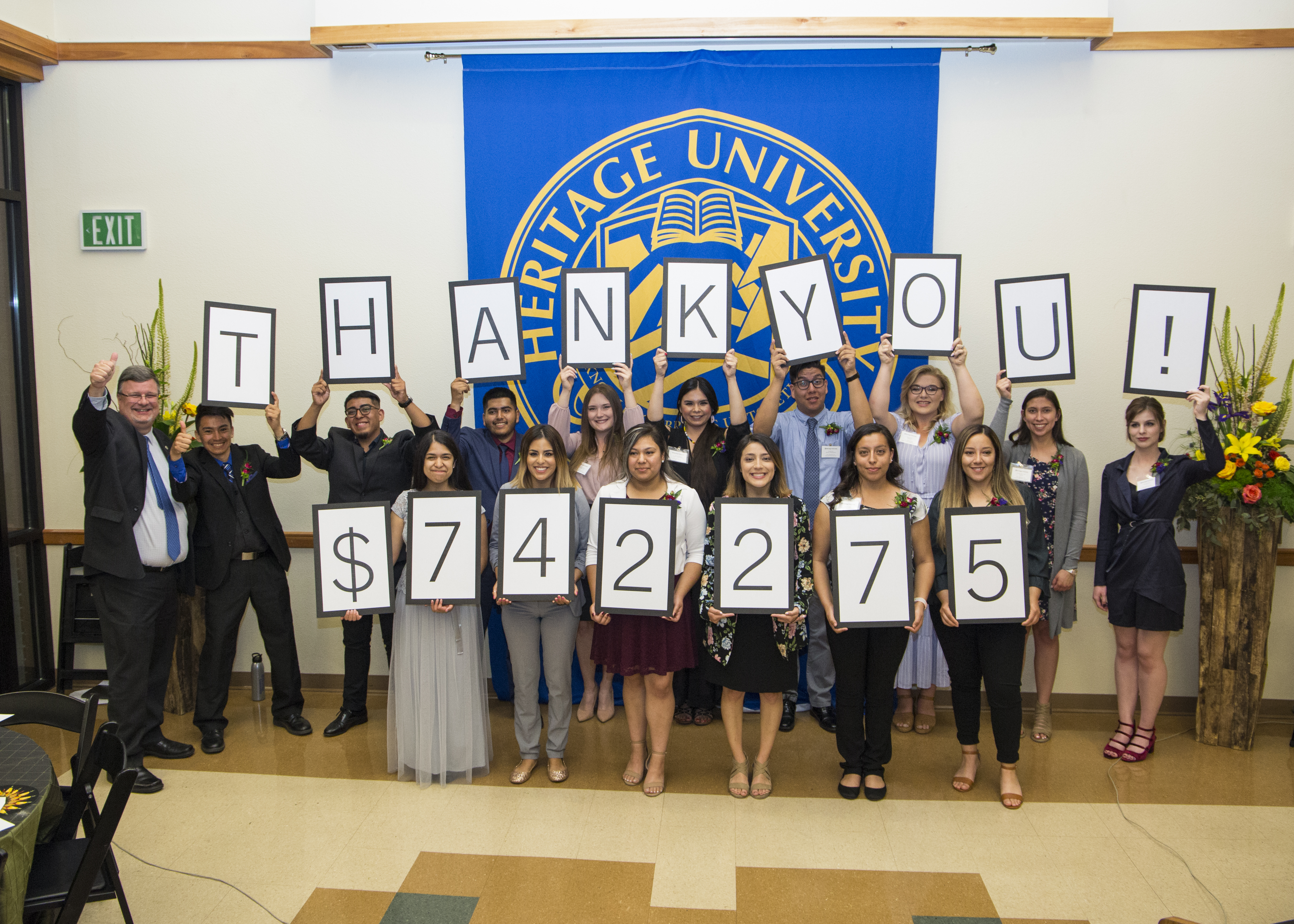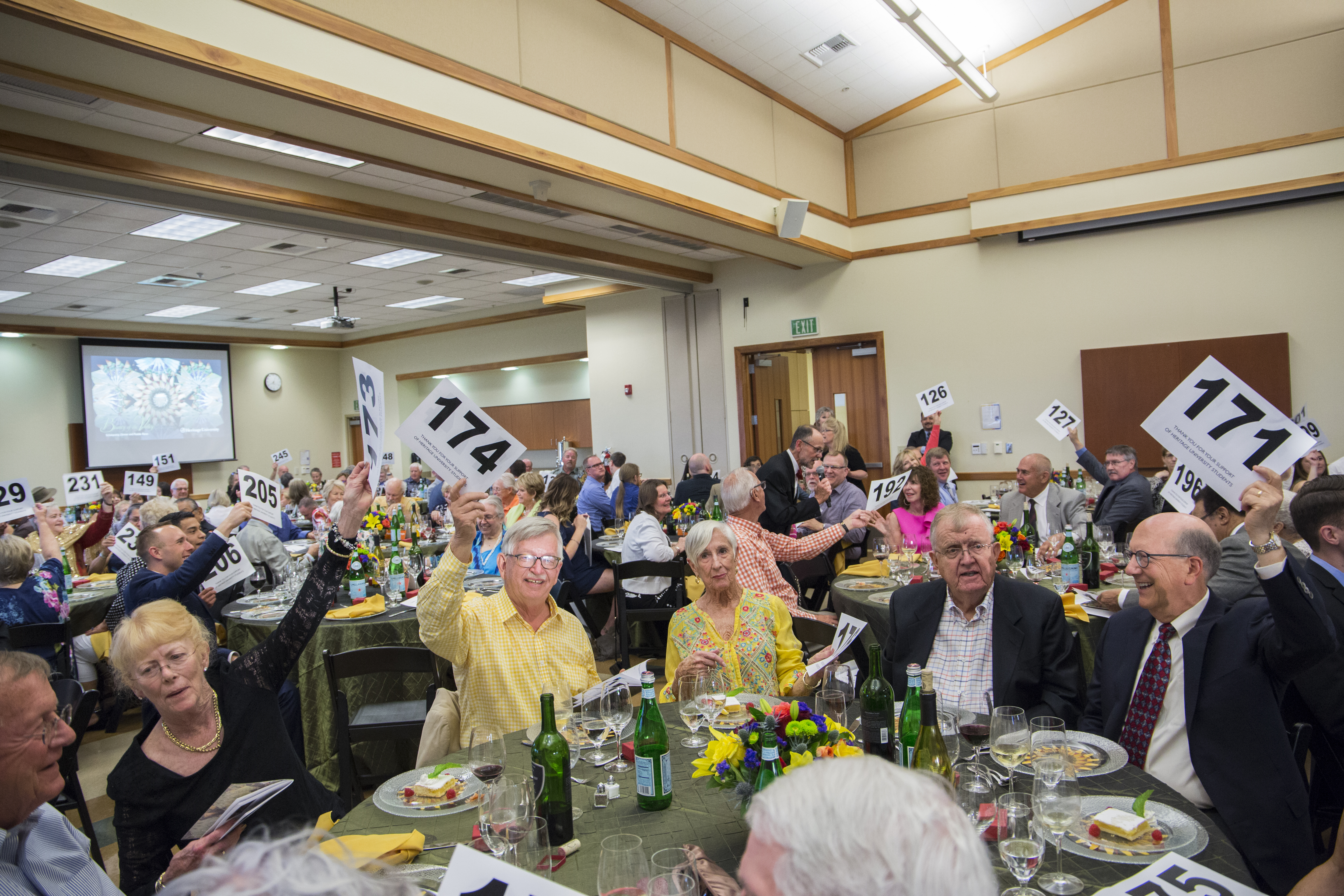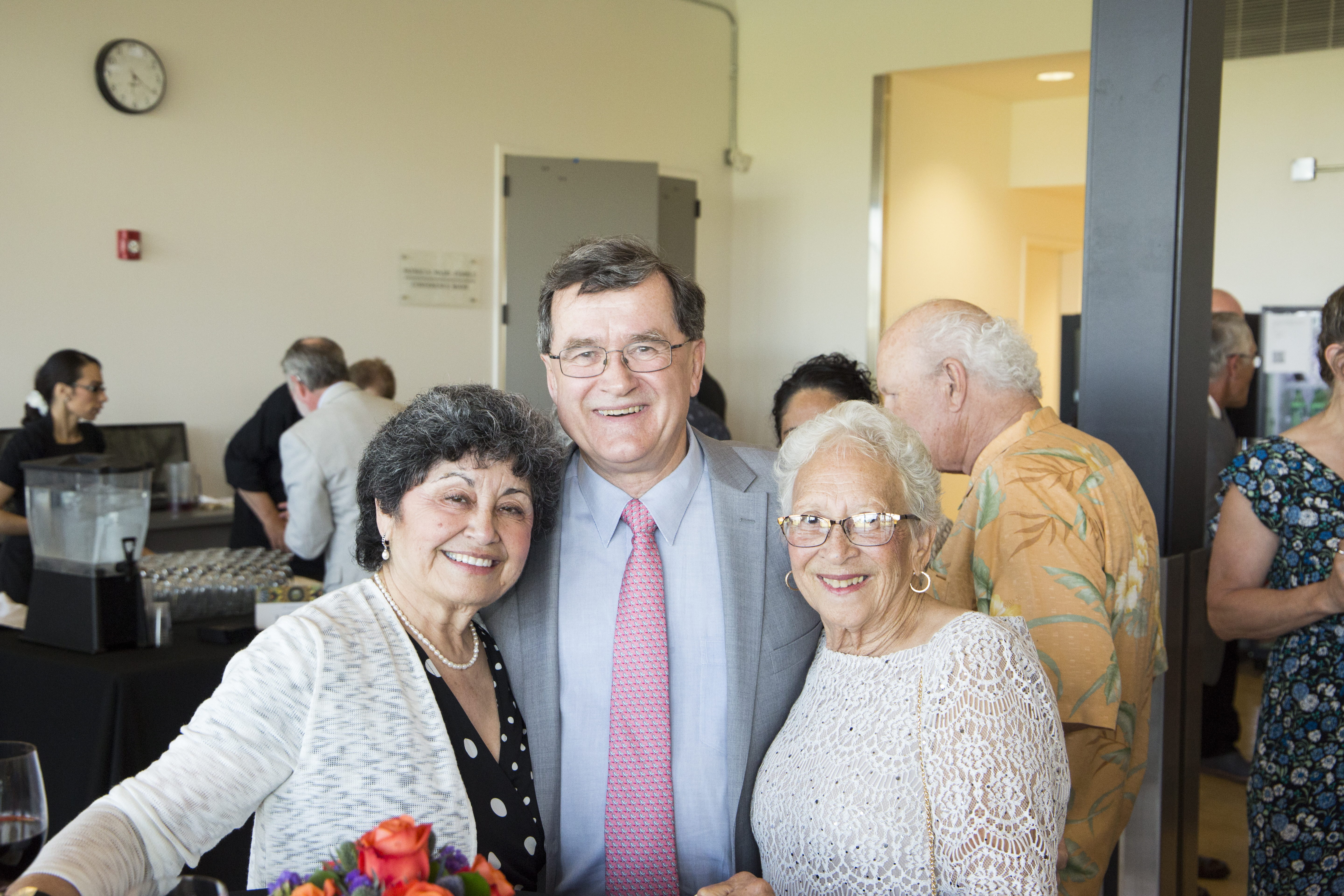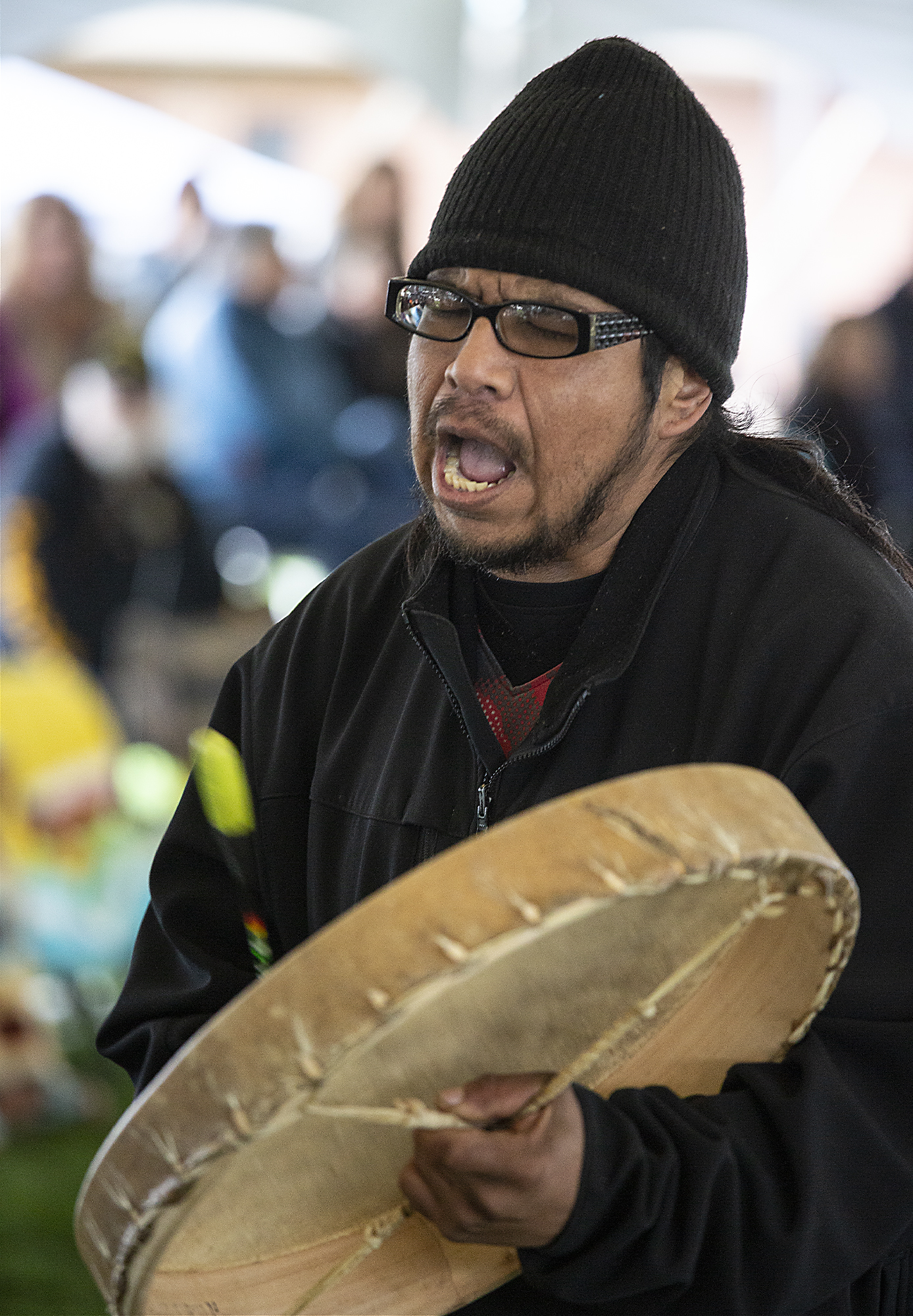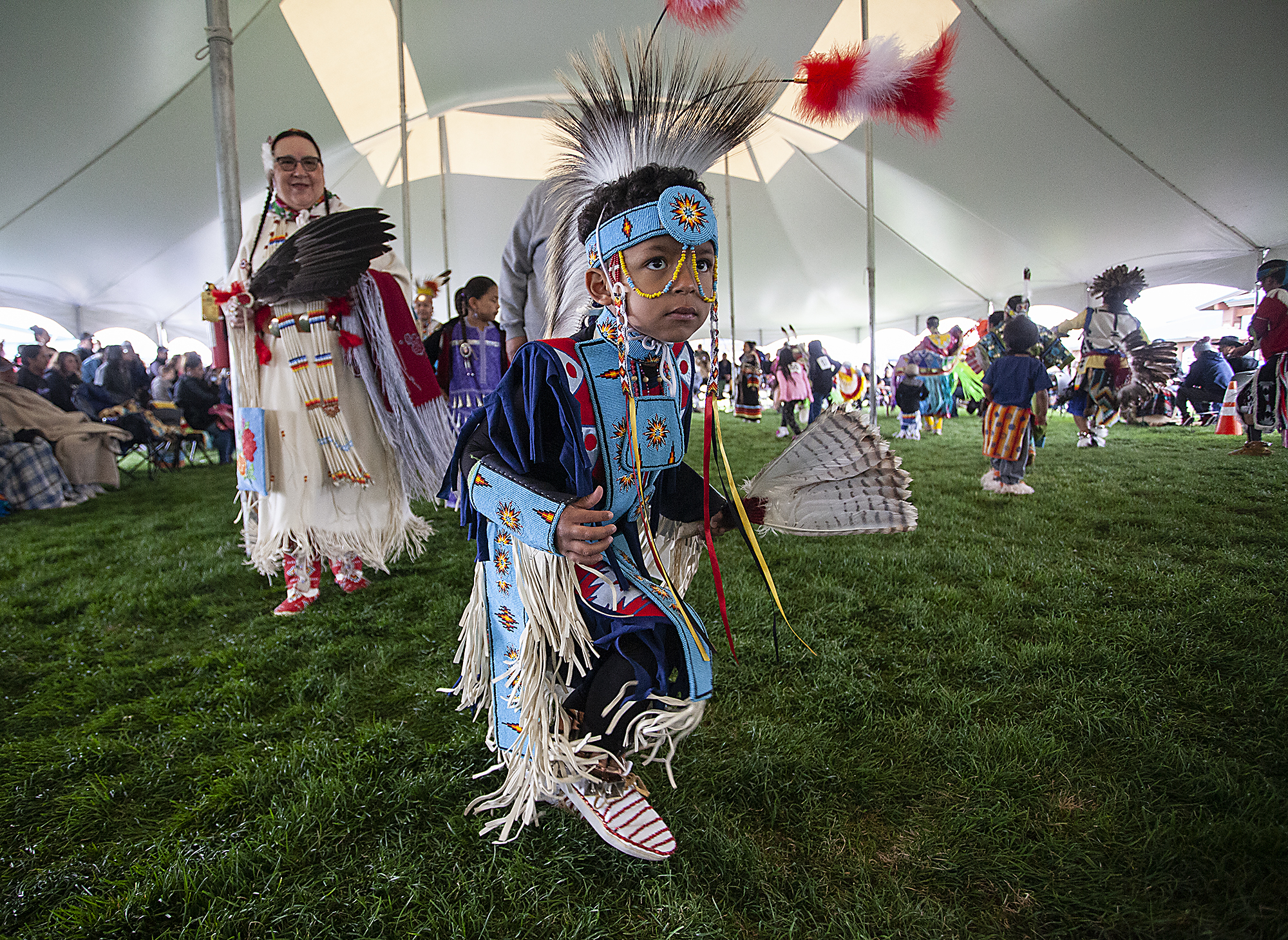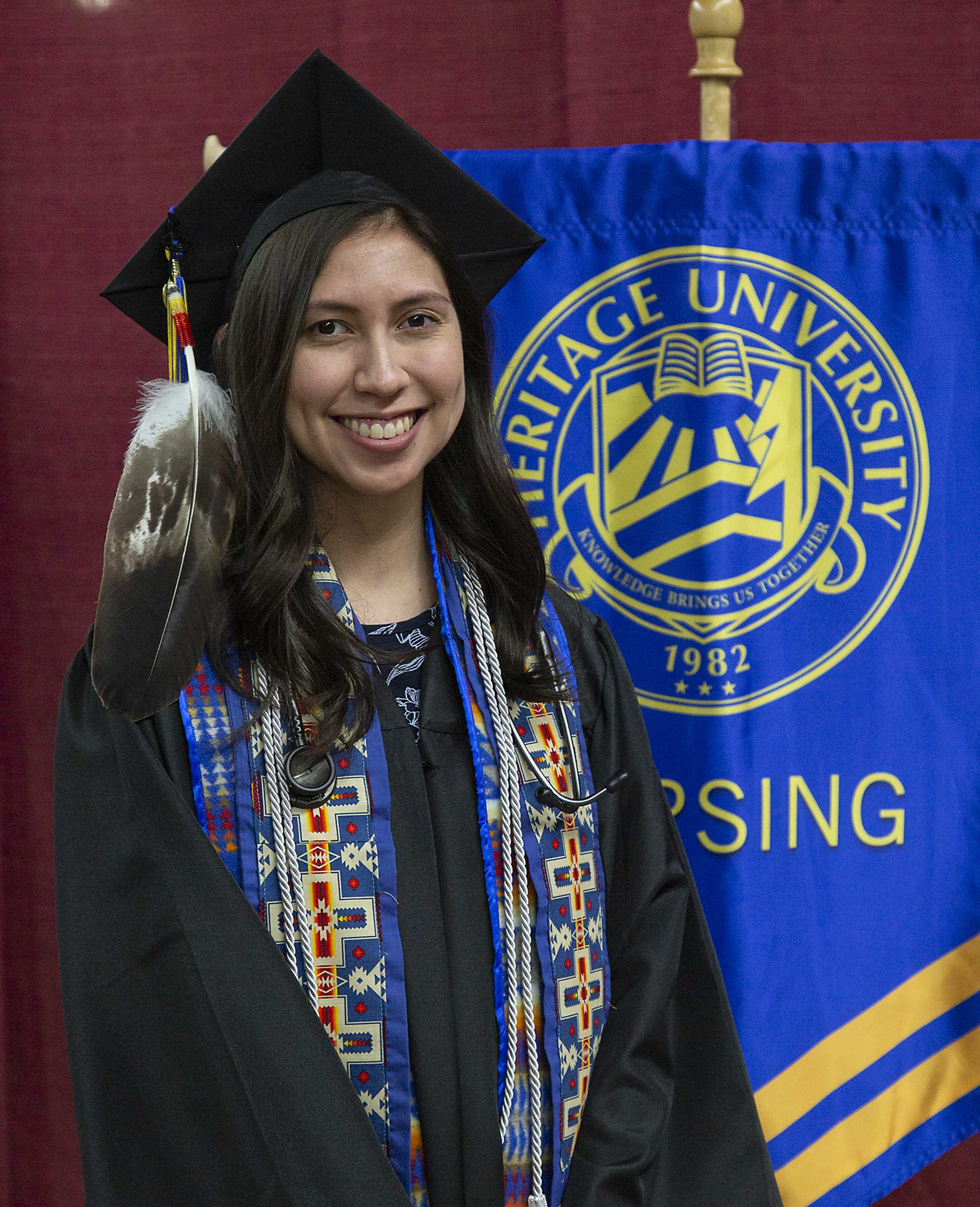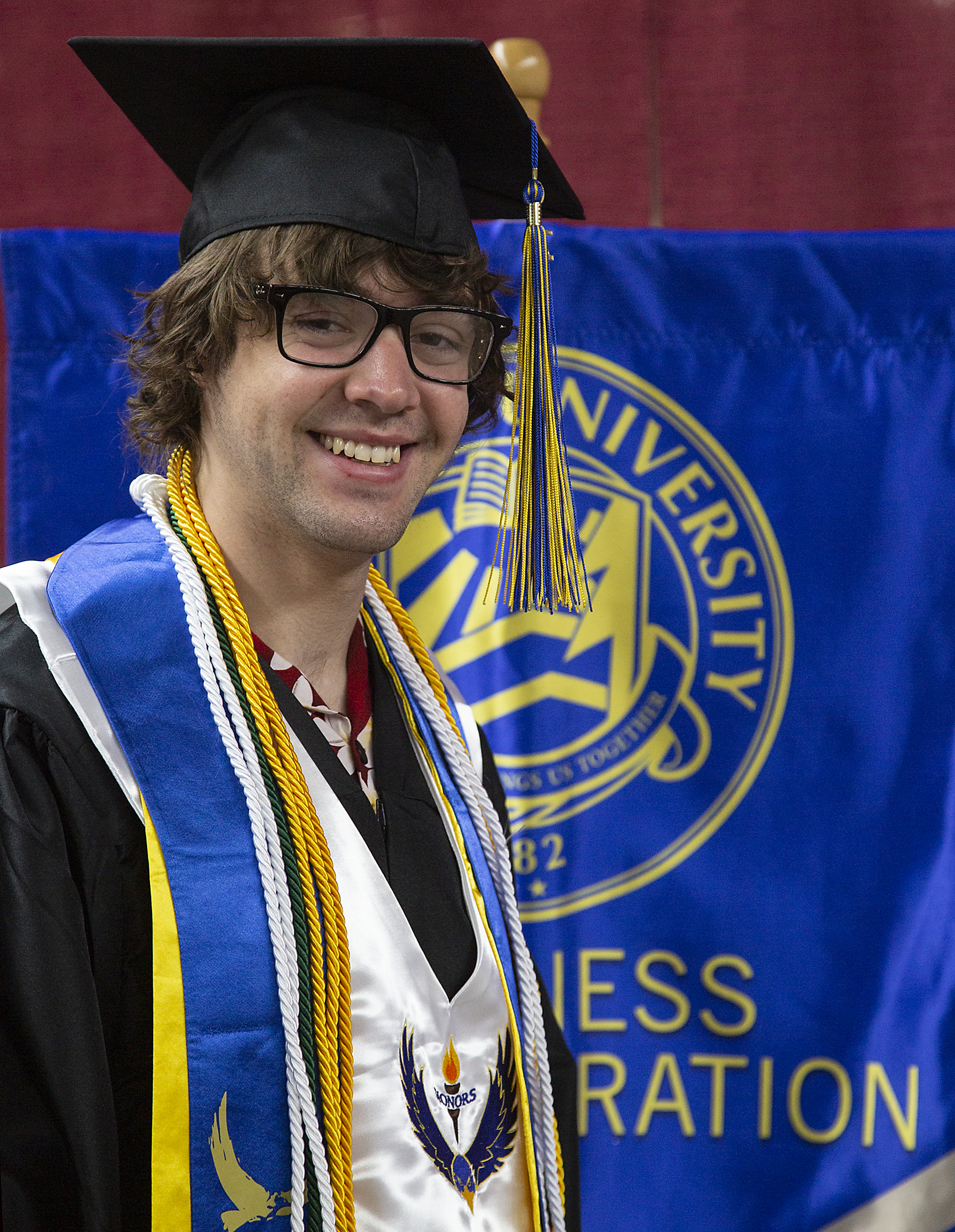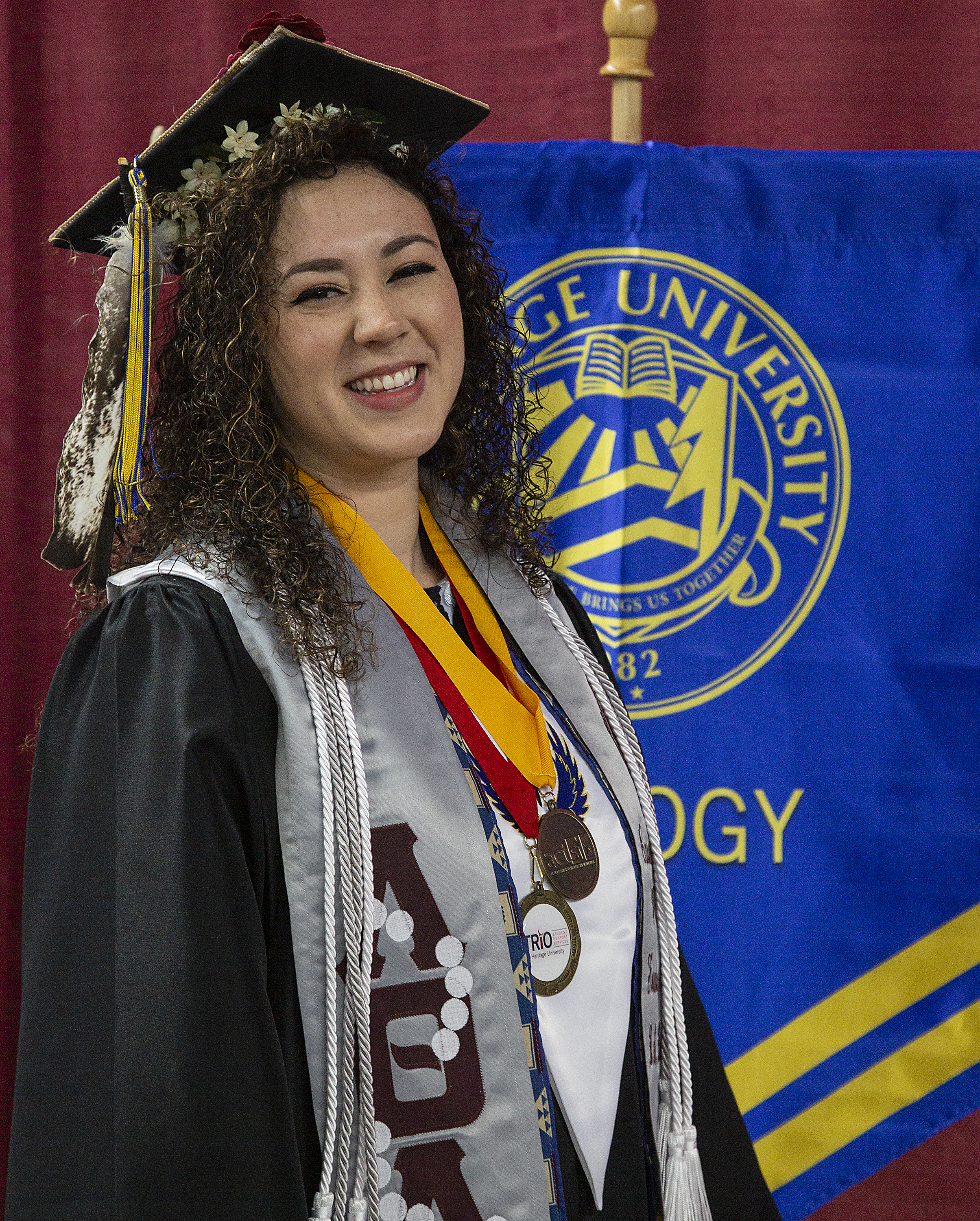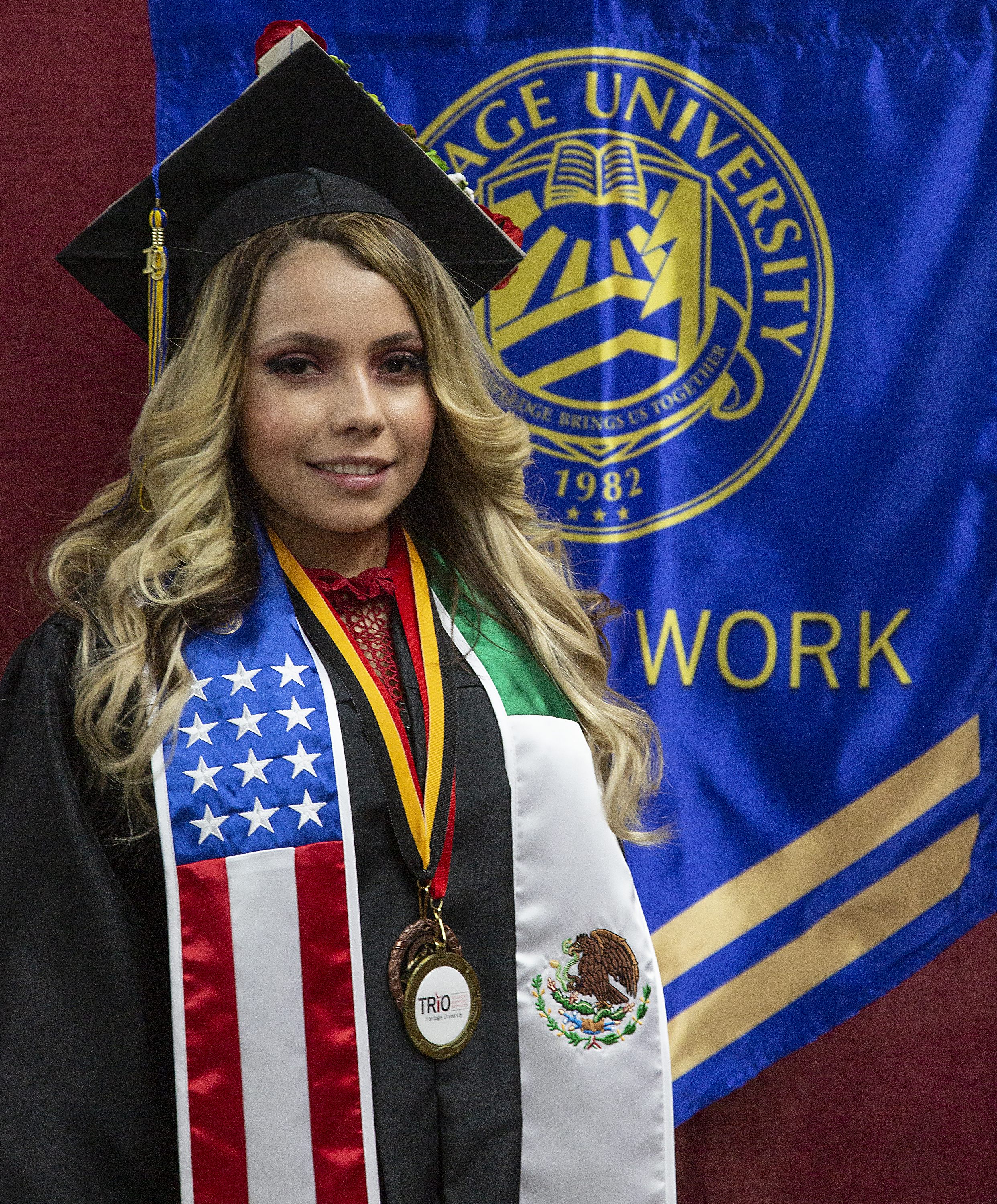FOR IMMEDIATE RELEASE
Seven-year accreditation reaffirmation reflects Heritage University’s commitment to higher education for all
Toppenish, Wash. – Heritage University President Dr. Andrew Sund announced two recent milestones that demonstrate Heritage University’s commitment to delivering higher education opportunities for all people of the Yakima Valley. The first, the reaffirmation of Heritage University’s accreditation by the Northwest Commission of Colleges and Universities (NWCCU) for another seven years, and the second, the adoption of a board-approved strategic plan for the University’s growth and continuous quality improvement through the year 2022.
Accreditation is a process of recognizing educational institutions for performance, integrity, and quality that entitles them to the confidence of the educational community and the public. Eight accreditation evaluators visited Heritage University for five days in early April to review the institution’s seven-year self-evaluation report. Following their visit, the evaluators commended Heritage in five areas:
- The deep commitment of its faculty, staff, and administrators to the mission of the University, which guides them in outstanding support of transformative, student-centered education, developing leaders who embrace social justice and community engagement.
- Its dedicated, data-driven efforts to support student access and equity, as exemplified by the summer Math Bridge and English Academy programs that have enabled hundreds of students to advance from developmental to college-level study.
- The Center for Intercultural Learning and Teaching’s (CILT) dedication to the delivery of high quality and continuous faculty development in areas of program review and assessment, the use of classroom technology, cultural responsiveness and care of students, and pedagogy that supports academic excellence for all students.
- The culture of assessment among its professionally accredited undergraduate and graduate-level majors and programs.
- Its Board of Directors for advancing the mission of Heritage University through its strong leadership, engagement, advocacy, philanthropic support, and discerning recruitment of new members to the Board.
In a letter to Dr. Sund reaffirming Heritage University’s accreditation, NWCCU President Sonny Ramaswamy stated “The NWCCU is committed to an accreditation process that adds value to institutions while contributing to public accountability. This action was taken after consideration of the evidence, including the institution’s Self Evaluation Report, the Peer-Evaluation Report, and information received as part of the institutional representative meeting with NWCCU Commissioners.”
Dr. Sund represented Heritage at the NWCCU Commission meeting in Park City, Utah last month at which the Chair of the visiting team officially presented her report to the Commission. “I am happy to report that the commission accepted the report of the visiting team with no additional comments. It is a reflection of our faculty and staff’s ongoing commitment to achieving the Heritage mission and that we meet the Commission’s expectations for complying with the accreditation criteria,” said Dr. Sund. “The accreditation renewal reinforces our conviction in the Heritage mission to empower a multi-cultural and inclusive student body to overcome the social, cultural, economic and geographic barriers that limit access to higher education embracing a transformational student-centered education that cultivates leadership and a commitment to the promotion of a more just society. We will continue to support the initiatives that made the university what it is and develop new programs that are responsive to the needs of students and the Yakima Valley community we serve.”
Recent initiatives demonstrating the University’s commitment to the valley include:
- Strengthening the University’s relationship with Yakama Nation: This year instituting the Full Circle Scholarship which allows enrolled members of the Yakama Nation to attend Heritage with no out of pocket expense for tuition.
- Reinforcing alliances with both Yakima Valley College and Columbia Basin College to make seamless the transfer process for their students.
- Adding the Heritage@Work, workforce development unit, to enhance training and development opportunities for local industries in preparing their employees for increasingly challenging positions within their organizations.
- Enhancing the University’s partnership with Pacific Northwest University of Health Sciences (PNWU) through shared programs including the Master of Arts in Medical Sciences (MAMS) and the Master of Science in Physician Assistant (MSPA): Both preparing graduates to succeed as innovative leaders in the delivery of healthcare in the Yakima Valley and nationwide.
- Developing closer ties with Valley High Schools: Students can participate in the University’s “New Horizons” program that allows their students to earn college credit while still in high school at no cost; and establishing a memorandum of understanding (MOU) with the Yakima School District (YSD) to become the primary provider of free college credits for College in the High School classes for YSD’s A.C. Davis and Eisenhower students.
The Strategic Plan adopted by HU’s 30-member board of directors in June lays out a roadmap for growth and continuous quality improvement at Heritage through December 31, 2022. The initiatives embraces are directed at growing the offering of services to students. These include implementing programs to meet the transportation, health resources and nutritional needs of students; completing a feasibility study on having on-campus housing; and implementing a sports program. “I’ve been blessed to work with faculty and staff who are dedicated to designing programs that further our mission,” said Dr. Sund. “Thousands have trusted this institution to transform their lives through their Heritage experience, and our strategic plan and renewed accreditation only embolden our intention to do just that.”
In addition to regional accreditation of the University, several programs at Heritage are accredited by accrediting bodies responsible for certifying competency in specific programs. They are as follows:
Medical Laboratory Science: The MLS program at Heritage is accredited by the National Accrediting Agency for Clinical Lab Sciences (NAACLS).
Education: State of Washington approval through the Professional Education Standards Board (PESB) has been granted to the following education programs: Residency Teacher; and Residency Principal/Program Administrator.
Nursing: The baccalaureate degree program in nursing at Heritage University is accredited by the Commission on Collegiate Nursing Education, 655 K Street, NW, Suite 750, Washington, DC 20001, 202-887-6791. It is also approved by the Washington State Nursing Care Quality Assurance Commission.
Social Work: The Bachelor of Social Work (B.S.W.) degree was accredited by the Council on Social Work Education (CSWE) effective with the class of 1997. The program was re-accredited in 2019.
Physician Assistant: At its September 2018 meeting, the Accreditation Review Commission on Education for the Physician Assistant, Inc. (ARC-PA) extended Accreditation-Probation status for the Heritage University Physician Assistant program until its next review in September 2020.
For more information, contact David Mance at (509) 969-6084 or mance_d@heritage.edu.
# # #

